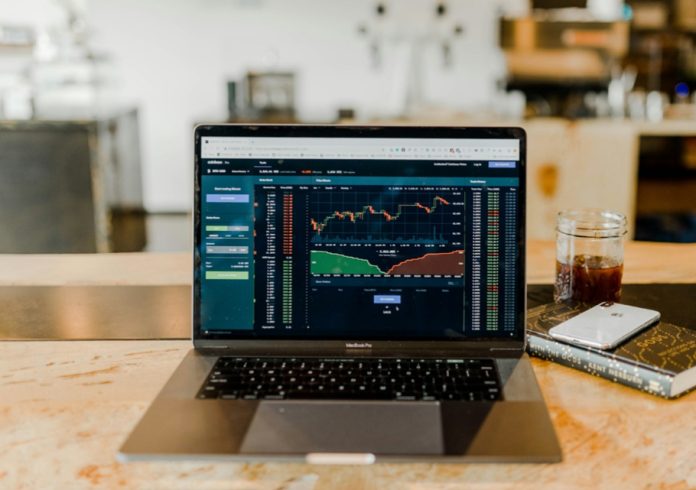Getting started with trading might seem overwhelming at first, especially with all the new platforms, strategies, and technical terms out there. But in 2025, access to global markets has become easier than ever for Nigerians. With just a smartphone and internet connection, you can begin your journey into one of the most dynamic financial opportunities available today.
More Nigerians are now exploring online trading as a practical way to earn extra income, learn financial discipline, and participate in global markets. Whether you’re a student, a 9-to-5 worker, or an entrepreneur, there are simple steps you can take to get started confidently.
What is Online Trading?
Online trading allows you to buy and sell financial instruments through internet-connected platforms. These instruments could be forex pairs, stocks, commodities, indices, or even cryptocurrencies. You don’t need to be in a physical stock exchange or financial centre as everything is handled digitally through your trading account.
Many brokers now offer powerful mobile apps and desktop platforms tailored to Nigerian traders. This makes it easier to enter the market, analyse price movements, and place trades in real time.
Setting Up: What You Need Before You Start
To begin online trading in Nigeria, you’ll need a few basic things:
● A reliable device (smartphone, tablet, or laptop)
● Strong internet connection
● A verified trading account with a reputable broker
● Basic understanding of market trends and risk
● Starting capital (even $10 can work with some brokers)
Once you’ve opened an account, most brokers provide demo accounts. These allow you to practise with virtual money before risking your real funds.
Choosing the Right Broker Matters
One of the most important early decisions is selecting a broker. A good broker ensures smooth trade execution, protects your funds, and gives you access to important tools like charts, indicators, and economic calendars.
In Nigeria, the number of international brokers accepting local deposits is growing. This means easier funding, local currency accounts, and even customer support tailored to Nigerian traders. Look for brokers that offer:
● Low minimum deposits
● Tight spreads and fast execution
● Local deposit and withdrawal methods
● User-friendly platforms for beginners
Learn the Basics: Don’t Skip This Step
Before placing your first trade, it’s essential to learn a few trading basics. You don’t need to become an expert overnight, but you should understand:
● How to read candlestick charts
● The meaning of pips, lots, and leverage
● How stop-loss and take-profit work
● The impact of news on price movement
There are plenty of free resources, courses, and YouTube channels that simplify these concepts. Many brokers also offer education sections for new traders.
Managing Risk: The Key to Long-Term Success
Trading is exciting, but it’s not gambling. The most successful traders are not the ones who go all-in on a lucky trade. They are the ones who manage risk wisely.
Here are a few simple principles every Nigerian beginner should follow:
● Never trade with money you cannot afford to lose
● Always use stop-loss on every trade
● Start small, then scale as your skill improves
● Avoid revenge trading after a loss
● Keep a journal of trades and lessons learnt
These habits are what separate consistent traders from emotional ones.
Start With a Strategy That Matches Your Lifestyle
Not every trading method suits everyone. Some Nigerians trade part-time in the evenings, while others prefer early morning sessions. Find a style that fits your schedule and personality.
If you like quick moves and excitement, scalping or intraday trading might work. If you prefer slower-paced decisions, swing trading or long-term setups may be better. The most important thing is to remain consistent and avoid hopping from one method to another without testing it properly.
Avoiding Common Mistakes
As a beginner, it’s easy to fall into traps. Don’t worry because most traders do. But the faster you learn to avoid these, the smoother your journey will be.
Some common mistakes include:
● Trading without a plan
● Overleveraging (using too much borrowed capital)
● Ignoring news events and economic data
● Chasing losses after a bad trade
● Relying too much on signal groups or “quick tips”
Success in trading comes from patience, discipline, and regular learning as there are no shortcuts.
Support for Nigerian Traders is Growing
In 2025, the ecosystem for online traders in Nigeria is stronger than ever. Brokers are offering Naira-denominated accounts, faster local deposit options, and Nigerian-focused education content. Some also host online webinars and mentorship events tailored to new traders from Lagos, Abuja, Port Harcourt, and beyond.
In addition, fintech growth is helping Nigerians access digital wallets and secure funding methods that integrate directly with trading platforms. It’s a good time to get started.
Final Thoughts
Online trading offers real opportunities for Nigerians who are willing to learn, practise, and manage risk. While the journey can start with curiosity, it grows with experience and discipline. Remember, the goal is not to get rich overnight, but to build a sustainable skill set that can grow with you over time.
As long as you start smart, choose the right broker, and commit to learning, you’ll be on the right path. 2025 may be your year to step into the markets and begin your journey.



